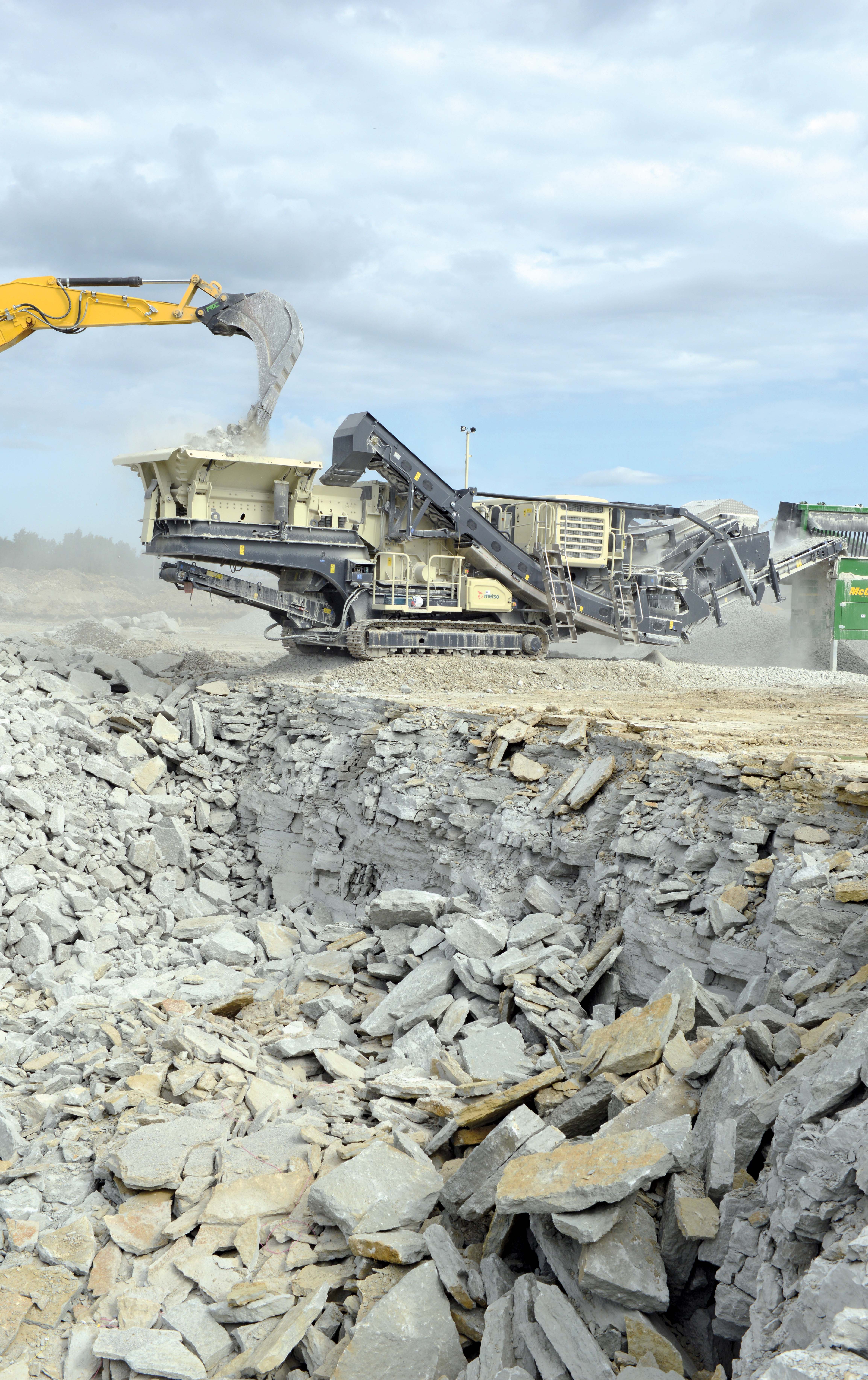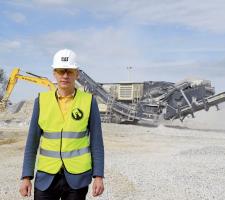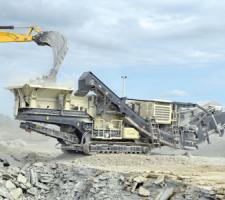
An Estonian contracting company is reaching impressive targets using equipment it has acquired through Wihuri, Metso’s new distributor in the country.
“Being a
Wihuri was founded in Tallinn as a subsidiary of the Finnish mother company Wihuri. The Caterpillar product sales were expanded to Latvia in 1999 and to Lithuania in 2001. Today, the company has some 120 workers, of which 42 are based in Estonia.
During the first year, Metso sales “have started well,” with three Lokotracks and two impact crushers being sold. Estonian contractor Purustaja is a major customer.
“While we operate as a contractor on site, our aim is to run a stable, continuous operation without any extra breaks to keep our operational uptime and profitability up. Our Lokotrack fleet of four different models combine high quality with prompt service, securing us to achieve our goals,” says Kuido Kaskla, a board member of Purustaja.
The company’s Lokotracks are often operating in recycling, oil shale and aggregates processing sites in Estonia and Finland.
For example, Purustaja has been a sub-contractor at the Harko limestone quarry near Tallinn, where a Metso LT1213S has been operating in closed circuit with capacities of 220-230tonnes/hour. The limestone feed material is 0-600mm, and all crushed materials exceeding 64mm are returned to the crusher via a return conveyor.
With the single LT1213S followed by a mobile screen, 0-4mm, 4-16mm, 16-32mm and 32-64mm aggregates are produced for use in building works; concrete and the bottom layers for roadworks.
To date, Purustaja has crushed about 100,000tonnes of different materials with the Lokotrack LT1213S, and in aggregates production a capacity up to 250tonnes/hour has been reached.
Purustaja, which operates throughout Estonia, started its Lokotrack fleet with a LT116 jaw crusher plant, and continued later with ST272 mobile screen and LT1213S mobile impactor plant. As the newest member, a brand new Lokotrack LT1213S was added to the company’s fleet in April 2015.
“Comparing the new LT1213S with the older one, we have verified a savings in fuel consumption of 15-20%. Probably the belt drive for the crusher combined with the idling mode when the feeder stays empty are behind the savings,” says Kaskla.
The new LT1213S is primarily used to reprocess oil shale waste, which contains limestone and a high proportion of shale. During the process, material previously classified as mining waste is separated into oil shale and limestone, and then crushed into aggregates. Recycled oil shale still has 70-80% of the energy intensity compared to newly-mined and enriched oil shale.
“Besides oil shale processing, we can use the LT1213S flexibly to produce highly cubical aggregates from limestone, and at any forthcoming recycling contract,” says Kaskla.
Indeed, in 2014, Purustaja crushed and screened about 1.4 million tonnes of materials, although in 2015 it says the amount will be slightly less because of the lowering oil price that also weakens the interest to reuse oil shale.
With the impact crushing technique, the company says it can easily bid any recycling and aggregates production job. Today, over 50% of the crushing is done with oil shale; 15-20% recycling; and 15-20% aggregates production.
During the first year, the Caterpillar sales team has been trained to sell Metso equipment. The Wihuri Baltic sales team is headed by Innar Vinni, crushing and screening segment manager.
Production of aggregates differs from one country to another. For example, in Estonia the ratio between limestone crushing and sand and gravel production is 70/30; in Latvia it is 50/50; while in Lithuania it is 30/70.
Most of the aggregates are made from good quality limestone and dolomite, thus the sales to date include mainly impact crusher-based Metso products including the LT1213S, LT1110, NP1007 and NP1110. One cone-based LT200HPS has been sold in the southern part of Estonia, and Berkovitch believes that there will be more demand for Metso mobile equipment in the future.
“According to our new legislation, we have to use taxed diesel in all construction machines. Therefore, there is a growing demand for electric driven machines.”















